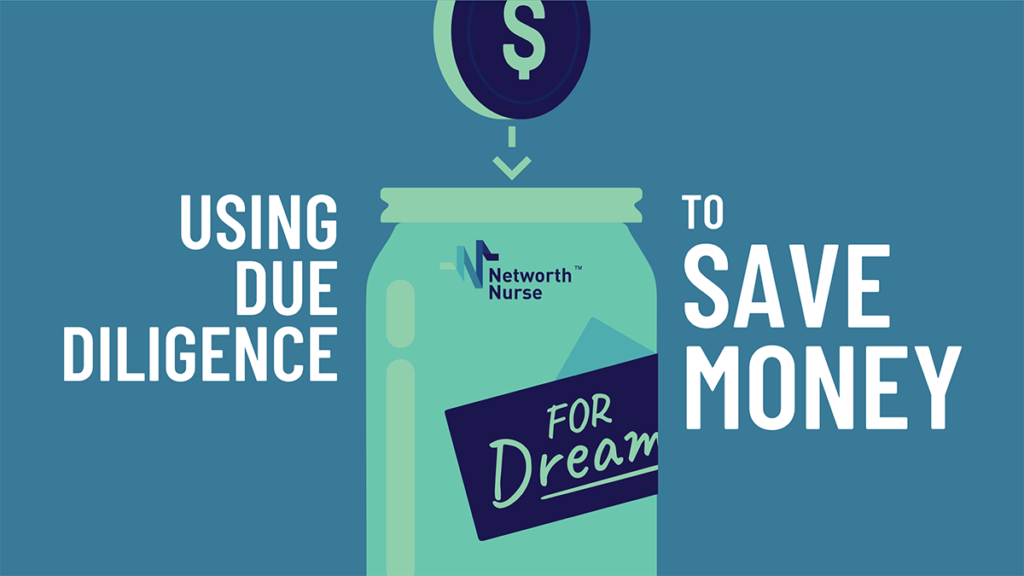The first thing we begin after we start the underwriting procedure for target acquisitions, is the due diligence process. Oxford dictionary defines due diligence as the reasonable steps taken by a person in order to satisfy a legal requirement, especially in buying or selling something.
We don’t let this process feel tedious, because although we are working through predetermined steps, we know we are helping ourselves in the long run. By doing the following due diligence process we identify possible issues as early on as possible. This way, we make the most of our precious time.
Working through the due diligence checklist below allows us to really intimately understand what we are buying. For example, if the property needs repairs, we can determine precisely what’s required through cost estimates. Following this checklist provides us with the safety of entering into the deals confident that we have the capital to get the necessary jobs done.
Below we share with you the in-depth due diligence process we’ve put in place through personally transforming our stumbling blocks into learning moments.
Due Diligence – Step By Step
We’ve come up with six steps to take to vet the deal before putting pen to paper. This a list of items we review to make sure we are hitting our targets and ultimately saving ourselves time and money:
1. Verify current rent roll and rent survey to cross reference financials
2. Review 12-month profit and loss (P&L) to better understand the history of the property
3. Receive insurance quote
4. Calculate Square footage/ unit mix verification
5. Call tax assessors office to verify taxes and estimate new property tax
6. Understand the sellers motivation and circumstances behind selling the property
The P&L gives us an overarching look at the historical performance of the property. This step is valuable in that it allows us to uncover any expenses we can conservatively shave off. The rent roll is helpful to recognize possible rent growth and see how many tenants may be behind. We then perform the rent survey to reference where the current rent is and where they can get to today.
Recently, insurance costs have been soaring, so having this quote is critical information. Just simply verifying owner/broker supplied square footage/unit mix against the assessor information, permits, Yardi matrix, costar, and other databases can be very telling. Many times we have found discrepancies. Once we feel comfortable with the steps above, and the proformas seem realistic, then we can move forward to finalize negotiations.
Working through these steps before going under contract, allows us to encounter fewer surprises during the escrow process, and avoid asking for changes to the contract or credits. We’ve reframed this whole process from time consuming and boring to one that provides us with immense values, so walking into it we feel pumped!
Week By Week In Escrow
Mapping things out and breaking them into steps has helped us stay organized and efficient in our processes. Below we share with you how we break down the weeks while in the due diligence period. This period typically lasts anywhere from 30 to 60 days, though the timeframe is heavily deal dependents.
Week 1-2
- Observe the property and market at night to observe safety and lighting.
- Drive the neighborhood to better understand the market population
- Receive all seller documents – financials, leases, contracts, utility bills, etc.
- Perform a professional general inspection to ensure there are not any significant defects with the property. We try to inspect every single one of the units. We also make sure our property manager is there to walk the property and give us their opinion.
- Get any bids needed for capital expenditures (CAPEX) items for the building – contractors are often very, very busy, it’s important to get started on this ASAP, especially if your business plan relies on a heavy value add component
- Review the title report for easements and recorded documents that could affect the property.
- Submit an application and financials to the lender to get the underwriting started.
- Start fine-tuning the insurance quote.
- Review all materials that are sent by the seller. Verify the income, security deposits, and expenses (utility expense, maintenance costs, etc.). Verify the type of tenants that are living in the building by checking their applications and qualifications – we do this through estoppel certificates.
- If anything major gets called out in the general inspection, we arrange to get inspections from multiple specialists.
- Select the lender and order the appraisal. These can take 2-4 weeks. Therefore, it’s essential to get this ordered as soon as we feel good with the condition.
Weeks 3-4
- Review and finalize quotes from the contractors -renovations can make or break a deal, so this step is extremely important.
- Hire your property manager. That way, they can get familiar with the building and be ready to get started the day after you close. Create a business plan with them. Open, honest communication during this phase sets the tone for the entire investment.
- Finalize insurance – cross reference with your lender to make sure all terms are acceptable.
- Order any other lender required reports like survey, environmental, and zoning.
- Finalize terms on your loan.
The Secret Sauce For A Successful Due Diligence
The key ingredient to making the due diligence process so successful, has been staying organized. There is quite a bit to cover during this stage, so having the above mentioned steps and plan in place, has allowed us to accomplish a lot in a small amount of time. Something could easily be looked over or missed if it’s not tracked. Having this due diligence checklist keeps us covered in the long run. Also, at the end of the process, we always have our attorney review contracts.
We know that property manager contracts could have big repercussions if, for example, specific fees are not considered. We are continually learning and improving our system as things are always changing. If we completely follow everything listed above, we don’t miss important things. Surprises may still come up during the ownership process, but staying organized and working through these steps helps us stay on the positive side of our investments.
We have learned that open, honest communication with everyone throughout the entire process works best. We are constantly sending “check in” emails to our team of lawyers, lenders, brokers, and property managers with a quick “are you waiting on anything from me?”. This simple, quick email has become so helpful in our communication efforts. There are many moving pieces to the due diligence phase, therefore organization and clear communication are essential





